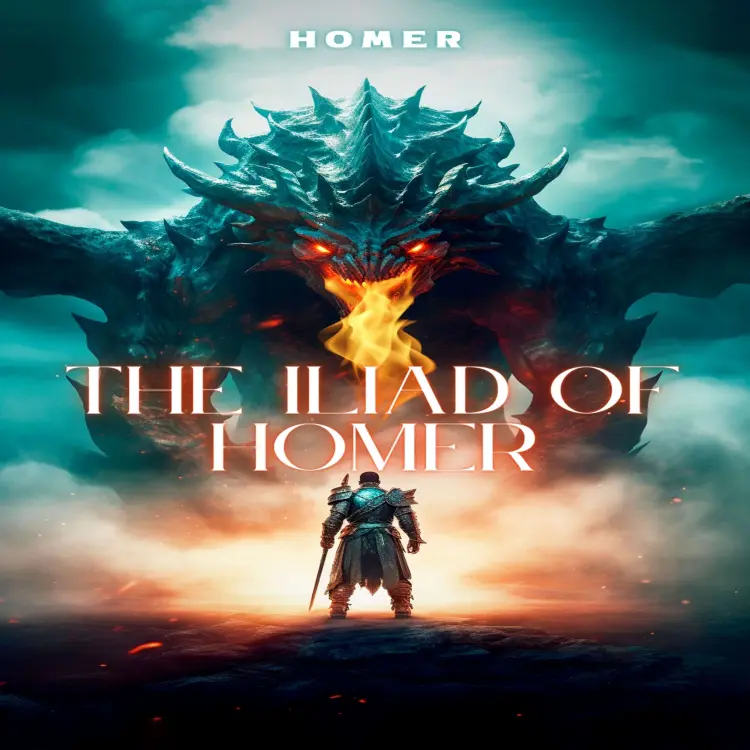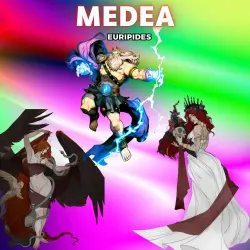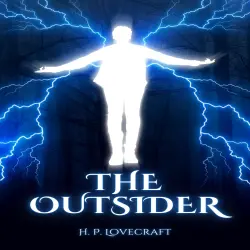
The Iliad of Homer - Rendered into English Blank Verse
Homer
From the publisher
The Iliad of Homer by Homer - "a poem about Ilium (Troy)") is one of two major ancient Greek epic poems attributed to Homer. It is one of the oldest extant works of literature still widely read by modern audiences. As with the Odyssey, the poem is divided into 24 books and was written in dactylic hexameter. It contains 15,693 lines in its most widely accepted version. Set towards the end of the Trojan War, a ten-year siege of the city of Troy by a coalition of Mycenaean Greek states, the poem depicts significant events in the siege's final weeks. In particular, it depicts a fierce quarrel between King Agamemnon and a celebrated warrior, Achilles. It is a central part of the Epic Cycle. The Iliad is often regarded as the first substantial piece of European literature.
The Iliad, and the Odyssey, were likely written down in Homeric Greek, a literary amalgam of Ionic Greek and other dialects, probably around the late 8th or early 7th century BC. Homer's authorship was infrequently questioned in antiquity, but contemporary scholarship predominantly assumes that the Iliad and the Odyssey were composed independently and that the stories formed as part of a long oral tradition.
Synopsis
The story begins with an invocation to the Muse. The events begin in medias res towards the end of the Trojan War, fought between the Trojans and the besieging Achaeans. The Achaean forces consist of armies from many different Greek kingdoms, led by their respective kings or princes. Agamemnon, king of Mycenae, acts as commander for these united armies.
Chryses, a priest of Apollo, offers the Achaeans wealth for the return of his daughter Chryseis, held captive by Agamemnon. Although most of the Achaean kings are in favor of the offer, Agamemnon refuses. Chryses prays for Apollo's help, and Apollo sends a plague to afflict the Achaean army. After nine days of plague, Achilles, the leader of the Myrmidon forces and aristos achaion ("best of the Greeks"), calls an assembly to deal with the problem. Under pressure, Agamemnon agrees to return Chryseis to her father, but decides to take Achilles' captive, Briseis, as compensation. Because war prizes were correlated with honor, Agamemnon's decision dishonors Achilles in front of the assembled Achaean forces. Achilles furiously declares that he and his men will no longer fight for Agamemnon. Odysseus returns Chryseis to her father, causing Apollo to end the plague.
In the meantime, Agamemnon's messengers take Briseis away. Achilles becomes very upset and prays to his mother, Thetis, a minor goddess and sea nymph. Achilles asks his mother to ask Zeus to allow the Achaeans to be beaten back by the Trojans, until their ships are at risk of burning. Only then will Agamemnon realize how much the Achaeans need Achilles, and restore his honor. Thetis does so, and Zeus agrees.(2) Zeus then sends a dream to Agamemnon, urging him to attack Troy. Agamemnon heeds the dream, but first decides to test the Achaean army's morale by telling them to go home. But nine years into the war, the soldiers' morale has worn thin. The plan backfires, and only the intervention of Odysseus, inspired by Athena, stops a rout. Odysseus confronts and beats Thersites, a common soldier who voices discontent about fighting Agamemnon's war.
The Iliad, and the Odyssey, were likely written down in Homeric Greek, a literary amalgam of Ionic Greek and other dialects, probably around the late 8th or early 7th century BC. Homer's authorship was infrequently questioned in antiquity, but contemporary scholarship predominantly assumes that the Iliad and the Odyssey were composed independently and that the stories formed as part of a long oral tradition.
Synopsis
The story begins with an invocation to the Muse. The events begin in medias res towards the end of the Trojan War, fought between the Trojans and the besieging Achaeans. The Achaean forces consist of armies from many different Greek kingdoms, led by their respective kings or princes. Agamemnon, king of Mycenae, acts as commander for these united armies.
Chryses, a priest of Apollo, offers the Achaeans wealth for the return of his daughter Chryseis, held captive by Agamemnon. Although most of the Achaean kings are in favor of the offer, Agamemnon refuses. Chryses prays for Apollo's help, and Apollo sends a plague to afflict the Achaean army. After nine days of plague, Achilles, the leader of the Myrmidon forces and aristos achaion ("best of the Greeks"), calls an assembly to deal with the problem. Under pressure, Agamemnon agrees to return Chryseis to her father, but decides to take Achilles' captive, Briseis, as compensation. Because war prizes were correlated with honor, Agamemnon's decision dishonors Achilles in front of the assembled Achaean forces. Achilles furiously declares that he and his men will no longer fight for Agamemnon. Odysseus returns Chryseis to her father, causing Apollo to end the plague.
In the meantime, Agamemnon's messengers take Briseis away. Achilles becomes very upset and prays to his mother, Thetis, a minor goddess and sea nymph. Achilles asks his mother to ask Zeus to allow the Achaeans to be beaten back by the Trojans, until their ships are at risk of burning. Only then will Agamemnon realize how much the Achaeans need Achilles, and restore his honor. Thetis does so, and Zeus agrees.(2) Zeus then sends a dream to Agamemnon, urging him to attack Troy. Agamemnon heeds the dream, but first decides to test the Achaean army's morale by telling them to go home. But nine years into the war, the soldiers' morale has worn thin. The plan backfires, and only the intervention of Odysseus, inspired by Athena, stops a rout. Odysseus confronts and beats Thersites, a common soldier who voices discontent about fighting Agamemnon's war.








